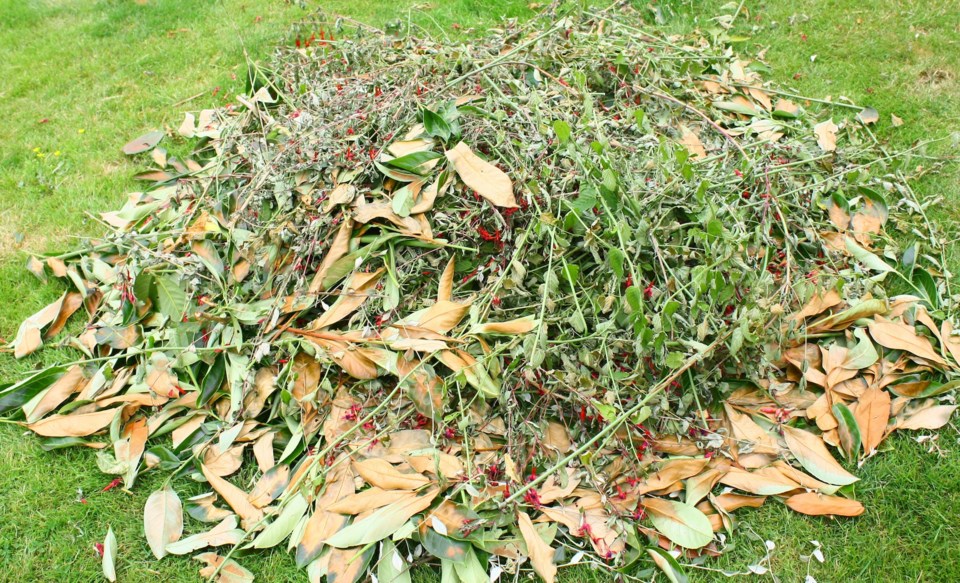Restrictions from the area’s only compost facility, A1 Organics, will reduce what Longmont and other municipalities can accept for compost.
A1 Organics is one of the few organic recyclers in the region, according to Charles Kamenides, waste services manager.
Due to an overwhelming amount of non-compostable materials being added to the compost waste delivered to its four facilities — located in Eaton, Keenesburg, Commerce City and Englewood — A1 Organics is enacting restrictions. Commercial businesses and residents who compost only will be allowed to place food and yard waste in compost bins headed for the facility.
The restriction prohibits items such as paper towels, compostable cups, paper products, compostable utensils and other organic materials “that are not explicitly food and yard waste,” according to a news release from the city of Longmont.
The only exception is that food waste can be contained in 3-gallon or smaller green compostable bags. All other items should be diverted to the trash or recycling, the news release states.
The new restrictions take effect on April 1.
A1 Organics was not available for comment by publication.
According to a presentation by A1 Organics, between 3-20% of the waste gathered at its facility is contaminated products including plastic, glass, clothing and more.
When compostable waste arrives at an A1 facility, it is dumped into piles and is later ground up and turned into compost, mulch or soil products the company sells.
When non-compostable items find their way into these larger compost piles, it contaminates the entire pile, making the compost unusable. These piles are then considered trash and are taken to the landfill, Kamenides explained.
A1 Organics, like many other compost facilities, does not have a sorting system to eliminate non-compostable waste, Kamenides said.
The city is not able to measure how much contaminated material is delivered to A1 from Longmont. There is some, Kamendies said, however, because of Longmont’s opt-in composting service, most people understand what is or is not compostable.
That being said, things slip in all the time, Kamendies said. As city trucks pick up composting materials throughout the city, the drivers look to identify if any of the materials in the bins are obviously non-compostable. If identified, the drivers will tag the waste to educate residents.
Drivers also try to spread out the waste as they dump so they can look through it easier and remove potential contaminants, Kamendies said.
Another contributing factor is confusing consumer products that lead customers to believe the item may be compostable when it actually isn’t.
“People try hard to compost, with a good heart, and they may be wrong about it,” Kamendies said. “People try really hard to compost but I like to use the word ‘wish compost’ … but there are so many things on the market that look like they are compostable but they are not.”
The change in composting practices in Longmont goes beyond the green bins located at residential homes. It will also impact the way the city of Longmont operates its trash collection within city buildings and community events.
Kamendies said he is in the process of working with custodial staff to remove composting bins in restrooms and other areas and educating staff on what should now be considered trash.
City-sponsored events and other events downtown have made an effort over the years to become zero-waste events. During these events, trash, recycling and compost receptacle were available along with a staff member or volunteer standing nearby to educate patrons on which bin to discard their waste.
These events encouraged participating businesses to use compostable materials to serve food and drinks.
According to Kamendies, recycling and trash receptacles will still be available but not composting.
Currently, the future of Longmont’s sustainability goals and a path to return to non-restricted composting is unknown.
The Leader reached out to Lisa Knoblauch, sustainability program manager for the city of Longmont to see how the composting restrictions will impact the city’s sustainability goals. She was not available for comment at the time of publication.
But not all hope is lost, Kamendies said.
The city of Longmont and other government agencies in the area have expressed interest in building a regional composting facility. Kamendies said, if this concept were to be implemented, it could house a sortation area that would reduce the contaminates that reach compost piles.
In 2021, Boulder County proposed building a $7 million compost facility on the old Rainbow Nursery outside of Longmont. Later, the county withdrew its plans after neighbors to the proposed site filed lawsuits against the county.
“After careful consideration of projected costs and associated engineering constraints, presentations by staff (including a staff memo), and their own review of the proposed project, the county commissioners agreed with the staff recommendation to withdraw the application for special use review of the former Rainbow Tree Nursery,” a county news release states. “They further directed staff to continue to look for opportunities to support the county's waste diversion and climate action goals, including composting solutions, and to seek public input along the way.”
“This is a big change for everybody and I am here for our community if there are questions,” Kamendies said, adding “we’ll get through this. I think that is kinda the final message, this is not the end of the world for composting.”



